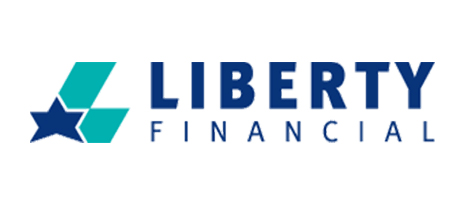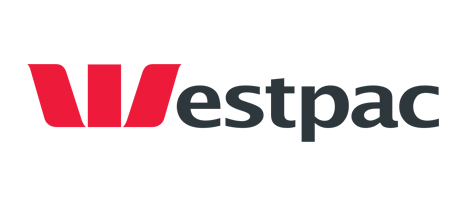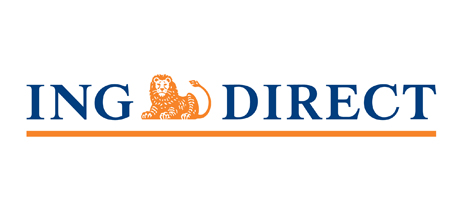Freequently Asked Question
Have questions about our finance services? We’ve answered some of the most common queries to help you understand our process, loan options, and how we can support your financial goals.

In a fast-changing market with many lenders to choose from, a trusted mortgage broker – is perhaps the single point-of-contact you need. We will ask the right questions to get a home loan that meets your needs and goals – here at Wealth Base- This is what we do best.
We have access to a large panel of lenders and will work diligently through your goals and objectives, recommending a choice of four lenders where possible. If you walk into a bank, they will only offer you their option because that is all they have. While a simple definition of a good mortgage is one with the lowest interest rate this may not be the cheapest overall option out there when you take into consideration all the fees and charges. In todays competitive market many banks offer incentives such as cash rebates, intro rates even frequent flyer points which makes selecting what is the overall best product for you sometimes challenging that’s why at WealthBase our expert team in lending will work with you to understand your individual circumstance and assist you to find the product and outcome that will best suit your situation.
When you have your first meeting with a home loan broker from WealthBase, you can expect the following:
- Introduction: We will introduce ourselves and provide an overview of our services. We will explain our role in assisting you with finding the right home loan.
- Needs Assessment: WealthBase team will ask you questions to understand your financial situation, goals, and requirements. This will help gather information such as your income, expenses, assets, credit history, and desired loan amount.
- Financial Analysis:Based on the information you provide, the broker at WealthBase will analyse your financial situation and determine your borrowing capacity. They will consider factors like your income, existing debts, and creditworthiness to estimate the loan amount you may qualify for.
- Loan Options: WealthBase will present you with different loan options available from various lenders. We will explain the features, interest rates, repayment terms, and any associated fees for each loan option. WealthBase may also offer recommendations based on your financial situation and preferences.
- Documentation: To proceed with the loan application, our broker from WealthBase will guide you on the required documentation. This may include proof of income, identification documents, bank statements, and other relevant paperwork.
- Application Process: The WealthBase broker will explain the loan application process and guide you through the necessary steps. They will assist you in completing the application accurately in detail to increase the chances of approval.
- Communication with Lenders: WealthBase will act as a liaison between you and the lenders, we will submit your loan application to the chosen lender(s) and communicate with them on your behalf. WealthBase representatives will keep you informed about the progress of your application and request any additional documentation or information as required.
- Advice and Guidance: Throughout the process, The WealthBase representatives will provide you with expert advice and guidance. We can help you understand complex financial terms, compare loan options, and make informed decisions.
- Privacy and Confidentiality: WealthBase will maintain strict privacy and confidentiality regarding your personal and financial information.
It’s important to communicate your needs and ask any questions you have to ensure a smooth and productive experience from this meeting.
Choosing the right lender or bank for your home loan is an important decision that depends on various factors – WealthBase is here to guide your decision. Here are some considerations to help you make the right choice:
- Interest Rates: Compare the interest rates offered by different lenders. Lower interest rates can save you money over the long term, but it’s essential to consider other factors as well.
- Loan Terms: Look at the loan terms and conditions offered by different lenders. Consider factors such as the loan term (e.g., 15, 20, or 30 years), repayment options, and any specific requirements the different lenders may have.
- Fees and Charges:Evaluate the fees and charges associated with the loan. These can include application fees, ongoing account fees, valuation fees, and early repayment fees. We will assess how these fees align with your budget and financial goals.
- Loan Features: Consider the features provided by different lenders. Some lenders offer features like offset accounts, redraw facilities, additional repayment options, and the ability to split your loan between fixed and variable rates. We will assess which features are important to you and align with your financial needs.
- Customer Service: Research the reputation and customer service of different lenders. We can help you look for reviews, ratings, and feedback from other customers to gauge their level of customer support and satisfaction.
- Flexibility: Consider the flexibility offered by the lender. Will they allow you to make extra repayments or access redraw facilities if needed? Flexibility can be beneficial if your financial circumstances change in the future.
- Mortgage Broker Recommendations: At WealthBase, we can provide recommendations based on our expertise and knowledge of the lending market. We have insights into which lenders are more likely to approve your loan based on your financial situation.
It’s important to compare options, and consider multiple lenders before making a decision. Consulting with us early in the process we can help you and provide personalised advice based on your specific circumstances and help you nurture and grow you to be ready when the timing is right.
The best time to refinance your home loan depends on various factors and your personal financial situation. Here are some scenarios when refinancing may be beneficial:
- Lower Interest Rates: If interest rates have significantly dropped since you obtained your current home loan, refinancing can allow you to secure a new loan at a lower interest rate. This can potentially reduce your monthly mortgage repayments and save you money over the long term.
- Improved Credit Score: If your credit score has improved since you initially obtained your home loan, you may be eligible for better interest rates and loan terms. Refinancing at this point can help you take advantage of your improved creditworthiness and potentially lower your interest rate.
- Change in Financial Goals:If your financial goals have changed, such as wanting to pay off your mortgage sooner or switch to a loan with different features (e.g., moving from a variable rate to a fixed rate loan or accessing equity for other purposes), refinancing can help you align your loan with your new objectives.
- Consolidating Debt: If you have other high-interest debts, such as credit card debt or personal loans, refinancing your mortgage may allow you to consolidate those debts into your home loan. This can potentially lower your overall interest rate and simplify your debt management.
- Accessing Equity: If your home has appreciated in value or you have made significant repayments on your current mortgage, you may have built up equity in your property. Refinancing can enable you to access that equity for purposes such as renovations, investments, or other financial needs.
- Change in Personal Circumstances: Life changes such as a job relocation, marriage, divorce, or starting a family can impact your financial situation. Refinancing can help you adapt your home loan to these new circumstances and potentially improve your financial flexibility.
Before refinancing, it’s crucial to carefully evaluate the costs associated with refinancing, such as application fees, valuation fees, and potential exit fees on your current loan. Consider the time it will take to recoup these costs through the savings generated by refinancing. Additionally, compare loan offers from multiple lenders and consult with a WealthBase professional to assess whether refinancing is the right choice for you. Ultimately, the best time to refinance your home loan depends on a combination of factors unique to your situation, including interest rates, loan terms, your financial goals, and the costs involved.
The decision between a fixed or variable rate for your home loan depends on your personal financial situation, risk tolerance, and market conditions. Here are some factors to consider:
Fixed Rate:
– Stability: With a fixed-rate loan, your interest rate remains the same for a specified period (typically 1 to 5 years), providing stability and predictability in your monthly mortgage payments. This can be advantageous if you prefer a steady budget and want to avoid potential interest rate fluctuations.
– Budgeting: A fixed-rate loan makes it easier to plan your finances since your mortgage payments will remain unchanged during the fixed-rate period. This can be particularly beneficial if you have a tight budget or prefer to have a consistent payment amount.
– Protection against Rate Increases: If you believe that interest rates will rise in the future, locking in a fixed rate now can protect you from potential increases and provide peace of mind.
Variable Rate:
– Lower Initial Rate: Variable-rate loans often have lower initial interest rates compared to fixed-rate loans. This can result in lower initial mortgage payments, allowing you to save money in the short term.
– Flexibility: Variable-rate loans typically offer more flexibility, allowing you to make additional repayments without penalties and potentially pay off your loan faster. This can be advantageous if you have the ability and intention to make extra repayments.
Potential for Rate Reductions: If market interest rates decrease, your variable rate can also decrease, leading to lower mortgage payments. However, it’s important to note that rates can also increase, potentially resulting in higher payments. It’s essential to assess your risk tolerance and evaluate the current market conditions when choosing between fixed and variable rates. Consider the following questions:
– How likely are interest rates to change in the near future?
– Can you afford potential rate increases if you choose a variable rate?
– How long do you plan to stay in the property? If you anticipate selling in the near future, a fixed rate may not be the best option since it generally comes with hefty break fees attached.
You may also consider a middle-ground option, such as a split loan, where a portion of your loan has a fixed rate, and the rest is variable. This can provide a balance between stability and flexibility.
Remember, interest rate predictions can be challenging, and it’s impossible to accurately forecast future rate movements. Our mortgage professionals at WealthBase or your financial advisor can provide valuable insights and help you make an informed decision based on your specific circumstances.
The Best Interest Duty (BID) is a regulatory obligation that requires us to act in the best interest of the clients (that’s You!) when providing advice or recommendations. The BID is designed to ensure that your interests are prioritised and protected during financial transactions.
We are required to gather comprehensive information about your financial situation, goals, and requirements. This includes assessing factors such as income, expenses, debts, credit history, and your ability to repay the loan. We will compare different loan options from various lenders and provide you with clear information about the features, benefits, and risks associated with each option. We will explain how each loan aligns with your needs and provide a rationale for our recommendations.


















